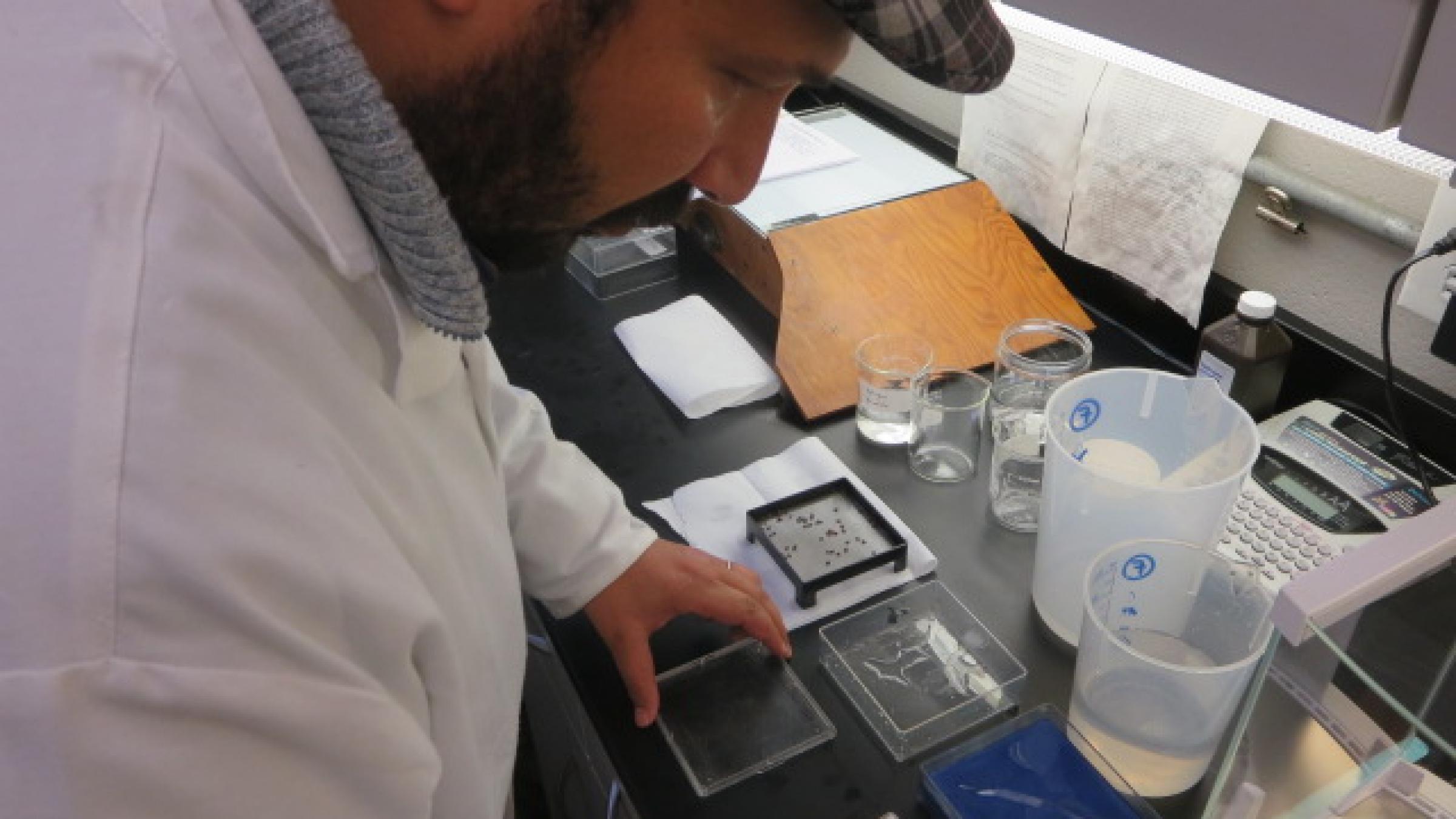Borlaug Program Fosters Global Collaboration at Ohio State

The Foreign Agricultural Service partners with land grant universities and other research institutions to provide training and collaborative research opportunities to scientists and policymakers from developing countries through the Norman E. Borlaug International Agricultural Science and Technology Fellowship Program. The following guest feature highlights the experiences of four Borlaug fellows recently hosted by the Ohio State University.
By Beau Ingle, Program Manager, Ohio State University Office of International Programs in Agriculture
Four up-and-coming scientists from the developing world have had life-changing experiences in America’s heartland this year, recently completing three-month fellowships at the Ohio State University (OSU) through the Norman E. Borlaug International Agricultural Science and Technology Fellowship Program.
“This particular program provides an excellent opportunity for Ohio State and our faculty to build collaborative research linkages with strong agricultural scientists from around the world,” said Dr. Mark Erbaugh, director of international programs in agriculture at OSU’s College of Food, Agricultural, and Environmental Sciences.
The fellowships were instrumental in not only providing these international researchers with knowledge and practical skills that will benefit their home countries, but also exposing the fellows’ faculty mentors to the pressing issues facing agricultural researchers and professionals outside of the United States.
Two Ghanian fellows, Kwame Frimpong of the University of Cape Coast, and Emmanuel Amoakwah of the Soil Research Institute, worked in the areas of soil science and land systems, respectively.
In Dr. Warren Dick’s lab at the Ohio Agricultural Research and Development Center (OARDC), Frimpong examined how biochar (charcoal used as a soil amendment) can improve soil quality. He also contributed to Dick’s continued research into no-tillage systems at OARDC, which has the longest continuously maintained no-till plots in the world.
Amoakwah worked with Dr. Rafiq Islam at OSU’s South Centers Research Station on a multitude of agricultural projects and events. The pair traveled to the World Food Prize in Des Moines, Iowa, in October, where Amoakwah delivered a presentation on agriculture in Ghana and the impacts of climate change on agricultural production.
“It was an astonishing experience, one that will remain an indelible memory of my time in the U.S.,” said Amoakwah of the opportunity to speak to an audience of renowned scientists and Borlaug fellows from other U.S. universities.
Continuing their collaboration, the Ohio State mentors and their mentees are planning a workshop in Ghana next May to provide training in sustainable agriculture to Ghanaian students, researchers, and farmers.
Coming from the National Gene Bank of Tunisia (NGBT), an institution only founded in 2007, Mohamed Dridi was eager to work with OSU scientists who have been involved in seed research for decades. NGBT seeks to improve agriculture in Arab and African countries through the conservation of more than 200,000 genetic samples from plants, animals, and microbes. By studying and protecting these genetic resources, agricultural biotechnologists like Dridi can promote genetic diversity that will ultimately have positive effects for plant breeding and overall crop improvement.
For his fellowship, Dridi worked with Dr. Pablo Jourdan at OSU’s Ornamental Plant Germplasm Center, becoming more proficient in methods of germplasm acquisition, documentation, characterization, and evaluation. Dridi also visited the National Center for Genetic Resources Preservation in Fort Collins, Colorado – one of the world’s largest gene banks that sits on the campus of Colorado State University and is managed by USDA’s Agricultural Research Service.
Bangladeshi Borlaug fellow Mosofa Kamal examined the genetic makeup of a variety of bacteria in an effort to identify types that could potentially suppress plant pathogens through biological processes, thereby lessening the dependence on conventional, chemical pesticides. Kamal worked in the lab of Dr. Brian McSpadden Gardener, professor in the OSU Department of Plant Pathology.
“Demand for biopesticides has continued to expand dramatically in the last five years. Therefore, basic research into the diversity and activity of biocontrol microbes will continue to be needed,” Kamal said. He noted that this need is especially critical in Bangladesh and other developing countries where farmers have experienced yield losses up to 50 percent as a result of various crop diseases, compromising the countries’ food security and stifling economic growth.
At his home institution, the Bangladesh Agricultural Research Institute, Kamal hopes to formulate effective responses to complex plant health issues, in addition to developing agri-food systems that are economically viable and that simultaneously promote environmental health.
